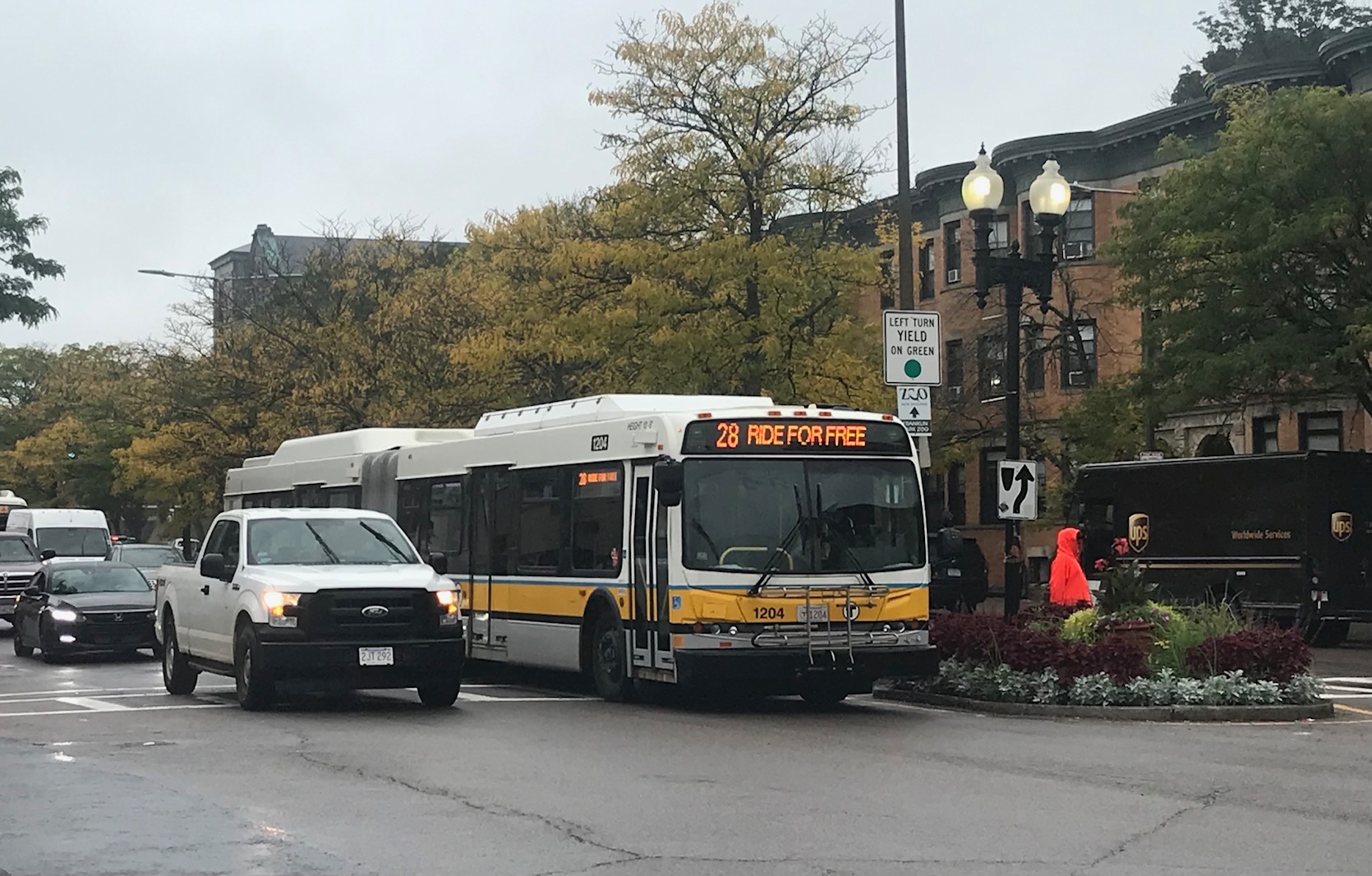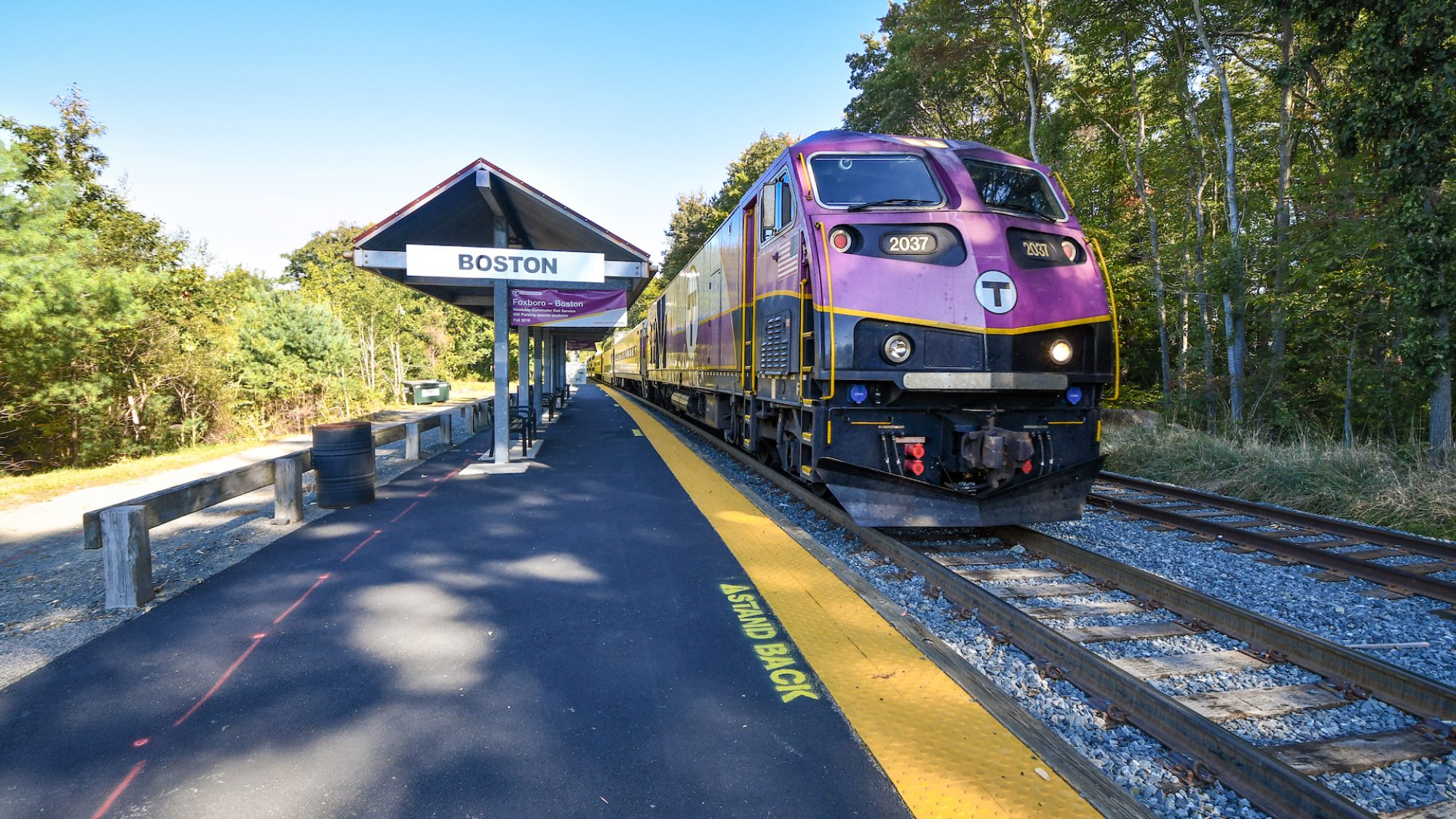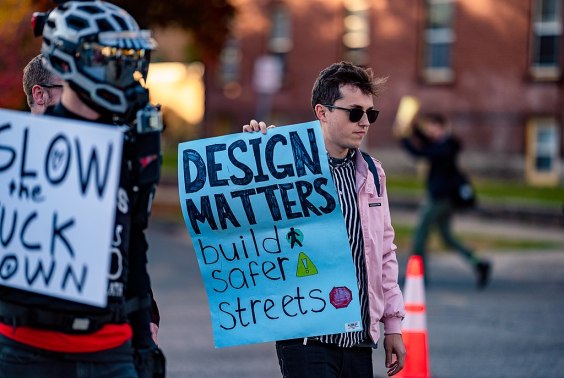At Thursday's Audit and Finance Subcommittee meeting for the MBTA board of directors, MBTA staff expressed support for adopting a systemwide low-income fare.
"We think means-tested fares are actually a very effective strategy to improve affordability and increase access," said MBTA Director of Fare Policy and Analytics Steven Povich.
Povich also noted that this is something that a lot of other transit agencies already do.
"Across the country, this is a policy that plenty of other organizations have implemented with success," Povich told board members.
The T also produced updated forecasts for the budget impact of a means-tested discounted fare program, which is expected to be considerably cheaper to the agency now that the T has lots of capacity on its bus system and wouldn't need to buy more buses or hire new drivers to accommodate increased ridership from low-income riders.
Pre-pandemic, the T predicted that a low-income fare program would dent the agency's annual operating budget by $83 million; now they forecast that the program would cost $52 million (the T's total annual operating budget is $2.6 billion).
Roughly two-thirds of that cost to the agency – $33 million – would come from lost fare revenue, which means that the program would generate a $33 million benefit for low-income riders paying lower fares for their trips. The remaining costs ($19 million) would cover administrative overhead and increased operations costs for the RIDE paratransit service, which would also be subject to reduced fares and would therefore be expected to serve more trips.
At the same meeting, staff also presented a similar analysis on rolling out a systemwide fare-free bus program. However, the T's staff concluded that fare-free buses would be more expensive for the agency, and ultimately offer fewer benefits to lower-income households.
Initial analysis of the City of Boston's fare-free bus pilot program in Dorchester and Mattapan suggests that, because so many riders still need to make paid transfers onto the subway system, a reduced fare that applies to all modes of transit would have a bigger impact than fare-free buses alone.
There was very little committee discussion on the presentation, but staff suggested that they could bring a formal proposal to the full Board of Directors at an upcoming meeting.
After the meeting, StreetsblogMASS reached out to Community Labor United, one of the organizations that's been advocating for a low-income fare in the MBTA service area.
"We’re glad to see the updated estimate from MBTA staff and hope that at their next full meeting, the Board advances this policy to help out riders who are struggling to get by," responded Collique Williams, Senior Organizer at Community Labor United. "The Massachusetts legislature and gubernatorial candidate Maura Healey have already shown their support for reduced fares for low-income riders, and the price tag is modest for the huge positive impact this would have on people’s mobility."
In June 2021, the previous MBTA governing board directed T staff to design and implement a low-income fare pilot program "before the end of 2022."
This summer, the Massachusetts Senate endorsed legislation to require a low-income fare program at the T, but Democratic leadership in the House of Representatives rejected the proposal.
Governor Charlie Baker also vetoed low-income fare legislation in 2021.






